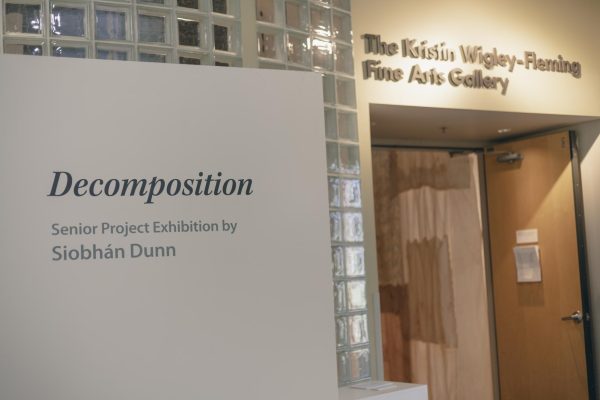Timeless gender issues revealed in Machinal
This past weekend, the Center for Performing Arts hosted the Visual and Performance Art’s (VPA) Spring Performance of Machinal. The group opened to its first crowd on Thursday night in bold fashion, continuing with four different performances throughout the weekend.
The play touches on themes of abuse and mental health in the 1920’s. It also focuses on topics such as harassment of women in the workplace, mistreatment of women in the medical community, media bias, and unwanted sex in committed relationships. Assistant Professor of Theatre and Director Josiah Laubenstein sees Machinal as a great representation of the time in which the play is set..
“Machinal, written in 1928 by Sophia Treadwell, tackles so many issues of that era,” Laubenstein said. “Our heroine, Helen Jones, doesn’t have an outlet to whom she can speak. Everyone around her exists within the machine of society.”
As Laubenstein noted, many themes are emphasized in the play. Students in attendance were forced to grapple with their own thoughts on these issues and how they see them playing out. Alexys Harwood (‘26) noted how important these themes were and the importance of talking about them in such a setting.
“I liked the play a lot, it spoke to the major feminine and masculine roles that were in place during the 1920’s,” Harwood said. “There was no such things as consent, and married men always harassed their wives”
Liz Clement (‘26), another student in attendance, said that the good acting and the pace of the play kept her intrigued.
“I didn’t really know what to expect at first,” Clement said. “Someone had said that it was about a murder trial and I thought that was going to play more of a factor in it. But, I really liked how it slowly went through and it was super suspenseful.”
The play overall highlights how some of these themes still carry over into today; however, Laubenstein mentioned how he hopes people will take away the significance of these issues, saying that “progress has been made” since the play was written.
“Progress has been made in our society, I believe that, and I think many people do too,” Laubenstein said. “[However] many are still oppressed by the machine. The machine exists to keep itself going [and] it is still going today.”






